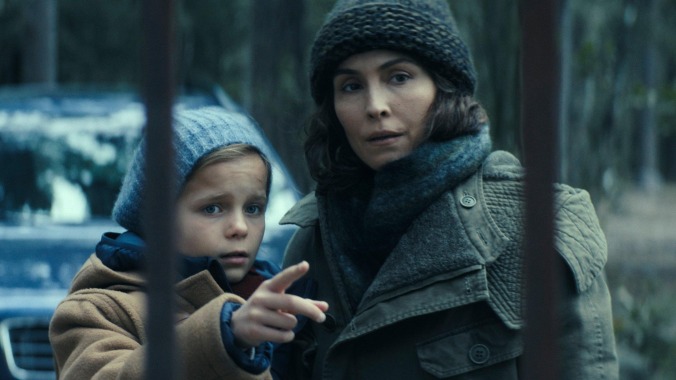Constellation review: Brace yourself for a trippy, hypnotic space thriller
Apple TV+ unleashes a brainy, WTF-inducing sci-fi drama starring Noomi Rapace

Let’s start with a warning: Constellation is not for everybody. Apple TV+’s latest sci-fi thriller, which premieres February 21, only rewards those with plenty of patience. It trots along slowly over eight hour-long episodes, providing a perplexing yet illuminating study of psychological trauma. The show uses an epic scope—the cosmos!—to pin down the nitty-gritty horrors of isolation and grief. At the very least, Constellation deserves merit for its ambitious attempt to balance the contradictory vastness of space with the astronauts’ claustrophobia and inner turmoil. That said, the central suspense is so damn loopy that it can’t fully sustain itself by the end.
It’s not that Constellation’s mysteries aren’t enticing. The first few episodes set up many complex twists in a way that will often have the viewer wondering out loud, “What the hell is going on?” Astronaut Jo Ericsson (Noomi Rapace) is trapped alone on the International Space Station after an accident kills a teammate and forces the rest to evacuate without her. In a death-defying mission, she eventually makes it back to Earth, but her solo experience on the ISS permanently alters her mind. Once home, she slips back into her routine but realizes her reality is askew. Her car color and kitchen cupboards are different, her child suddenly doesn’t speak their native Swedish, and even her marriage with Magnus (James D’Arcy) is worse than she remembers.
Is Jo’s time in space affecting her memory, or is there a sinister conspiracy bubbling underneath? Constellation leisurely unravels the answers. And we mean leisurely: Episode one doesn’t fully make sense until the fifth installment rolls around, and this toggling between Jo’s internal dilemma and the overarching enigma of the space-time continuum makes for an oddly paced show.
Constellation’s hints at the supernatural—perhaps there’s an alternate universe or parallel dimensions, or maybe Jo’s quest lies only in her head because she’s suffering from severe PTSD—are big driving forces of the show. Series creator Peter Harness’ exploration of this real-vs.-fake dichotomy can be traced to everything from Interstellar to Inception to The OA to Black Mirror. Here, he uses an unfathomable scientific event to microscopically examine human emotions, wanting the unexplainable to try and explain, well, life and what completes it.
